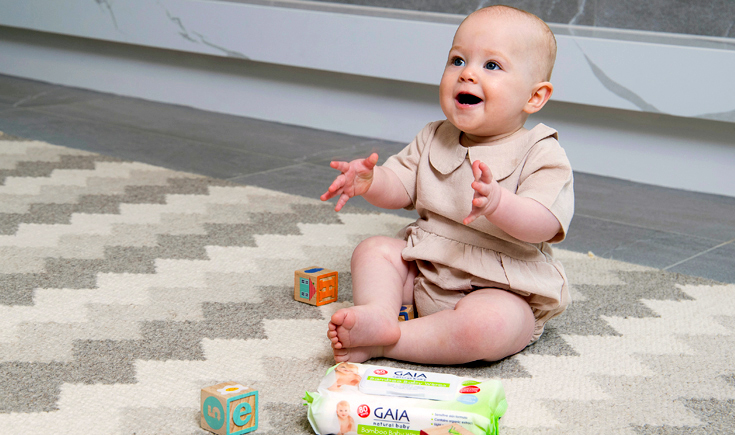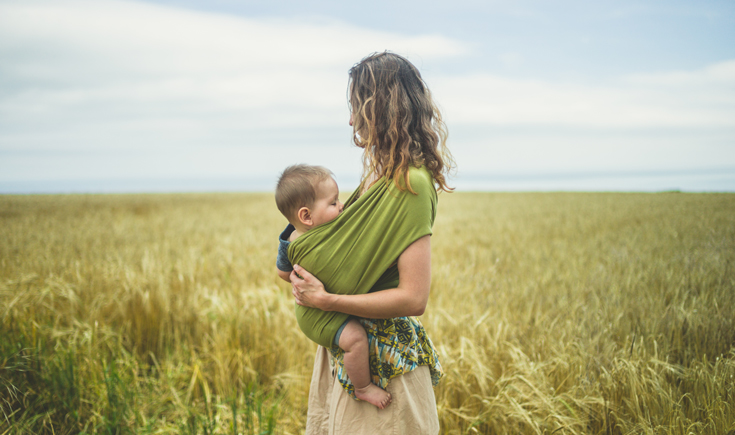They might be tiny, but babies have a huge impact on the environment. They just seem to need SO much stuff! Whilst saving the planet might be the last thing on your mind when you’re deep in the trenches of night feeds and endless nappy changes, luckily there are plenty of sustainable products out there. You just need to know what to look for, and even making a few simple swaps will make a massive difference, and you’ll be raising an eco-conscious child in the process.
For greener nappy changes
- Use sustainably-produced cloth nappies, wash them using an eco-friendly detergent, and dry them on the clothesline. Even if you start with replacing two disposable nappies with cloth, you’ll be saving 730 nappies from landfill every year!
- Use 100% biodegradable bamboo wipes. Bamboo naturally breaks down, needs very little water and uses less space than cotton to grow. It’s harvested from established plantations, rather than forests, so it doesn’t destroy animal habitats such as the orangutan or panda.

For Mother Nature-approved sleep
- Even if your baby won’t sleep, you’ll rest easy knowing you’ve chosen a cot that’s made from sustainable wood, and finished with safe and non-toxic paint.
- Look for a mattress that is made from non-toxic materials, and bedding that is breathable, Global Organic Textile Standards-certified organic cotton.
For bathtime without the chemicals
- There are baby skincare products that claim to be gentle and natural, but look carefully at the ingredients. You want to see recognisable natural oils and extracts that are formulated for sensitive baby skin, and no artificial perfumes or additives.
- There’s no need to bathe your baby every day, so save yourself the effort and the water…unless of course it’s a time of day that you both cherish. You might like to wash babies’ face, hands and skin folds every other day with cotton wool and water instead.
For planet-loving mealtimes
- Whilst off-the-shelf food is convenient, it’s much cheaper and tastier to make food yourself. Making your own meals with seasonal fruit and vegetables means less packaging and will also be healthier and fresher.
- When looking at feeding products, look for tableware and even bottles that are non-toxic, (mostly) plastic free, sustainable, and long-lasting. Think ceramic, bamboo, glass, and stainless steel.
For babywear with a conscience
- Natural and organic baby clothing and swaddles are better for the environment, tend to be higher quality, and are gentle on delicate skin. Babywear made from ethical materials such as sustainable bamboo, Global Organic Textile Standard-certified cotton will ensure you, your, baby, and environment are happy.


